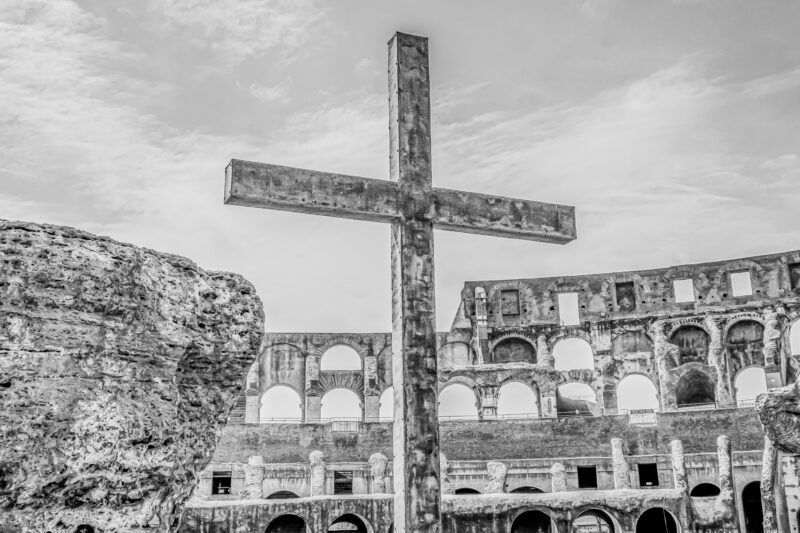
November is a solemn month, one which is marked by many memorials. On Remembrance Day, we commemorate not only the conclusion of the Great War, but all of the fallen who made the ultimate sacrifice in the course of Canada’s other military conflicts as well. To this annual anniversary, further occasions to reflect in a similarly somber way have been added. The International Day of the Persecuted Church, for example, is now held on the first Sunday of the month and, in a similar vein, “Red November” seeks to raise awareness about the ongoing plight of persecuted Christians around the world. Christianity, of course, began with persecutions and martyrdoms; and, even though the followers of Christ have frequently converted their torturers and executers—and many Christians empires, kingdoms, and nation states have arisen in the course of the centuries following Christ’s birth—violence against those who spread and live the Gospel is never far off.
The news out of Nigeria is grim proof of this fact. Last month, Newsweek reported that NGOs in the country have warned that “Christians ‘Are Being Wiped Out’ in Nigeria as Millions Face Death.” U.S. Senator Ted Cruz, for his part, has pegged the number of Christians murdered since 2009 at 50,000 with an additional 2,000 schools and 18,000 churches having been destroyed by Islamist groups. Add this to the brutal persecution of Christians—especially Catholics—at the hands of Nicaragua’s leftist government, the complete suppression of non-state-approved churches in China, and the mass exodus of ancient Christian communities from countries like Iraq and Syria, and one quickly realizes how widespread violence against Christians remains in the modern world.
Nor are Christians untroubled in Europe and North America. Here, the powers that be are, slowly but inexorably, restricting Christians in the practice of their faith and their witness to the truth of the Gospel. In the United Kingdom, Isabel Vaughan‑Spruce was arrested twice in 2022 for the crime of silent prayer. Even though she was later acquitted and awarded compensation, her case did not set a precedent that prevented a similar arrest, charge, and conviction of Adam Smith‑Connor who, in 2024, likewise, committed the crime of silent prayer. Both of these heroic pro-lifers were praying too near facilities where babies were being murdered. It’s clear, then, that the British state is willing to cast aside its most ancient traditions of justice and jurisprudence to punish Christians for the act of prayer. Such arrests would hardly be out of place in a totalitarian regime and they should shame every politician in the U.K. These outrageous prosecutions augur nothing good about the future of the West.
Closer to home, of course, we can take pride in the likes of Linda Gibbons and Mary Wagner who have both spent time in jail for their courageous, peaceful witness on behalf of the unborn. These Canadian heroes, like their British counterparts, are not wrongly remembered in the month of November, for theirs constitutes a kind of “white” martyrdom, the bloodless analogue of the “red” martyrdom which continues to transpire in so many places around the world. As we commemorate persecuted Christians this month, we can honour both the living and the dead: the martyrs of the white and red alike. The latter remind us what the ultimate stakes of faithful witness really are; even if Christians in Canada are not currently called to make the ultimate sacrifice, we are called, continually, to make ourselves ready for doing just that.




